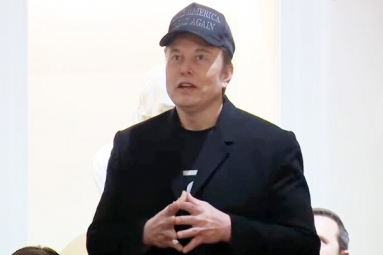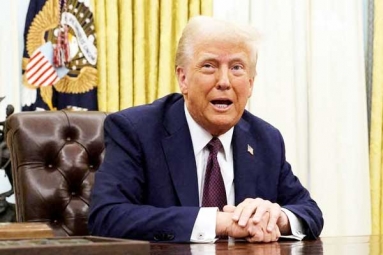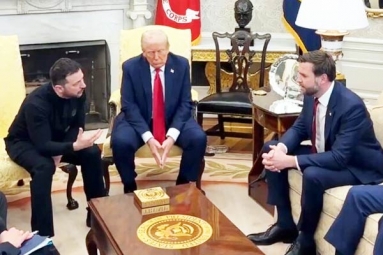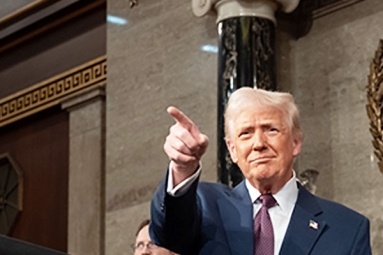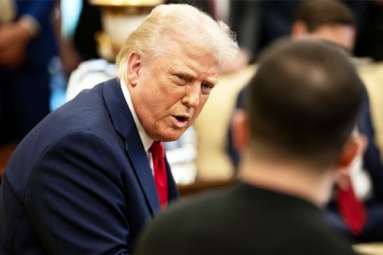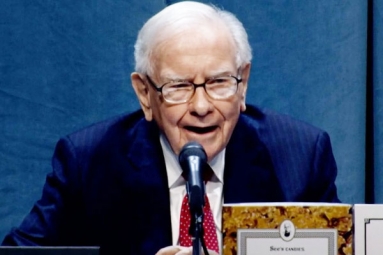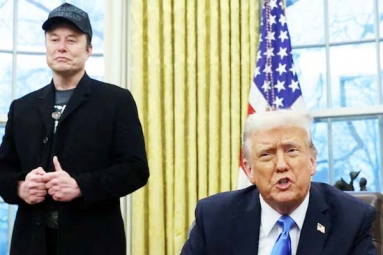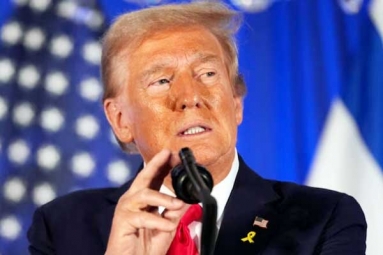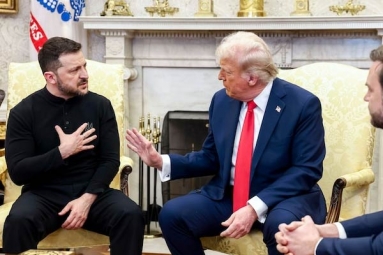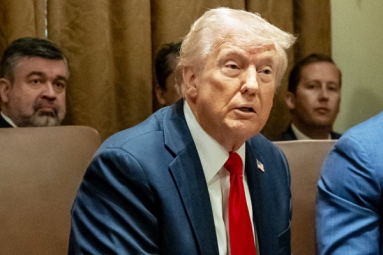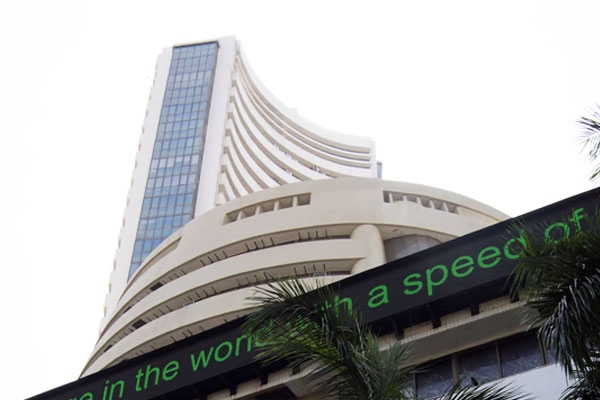
(Image source from: Fortuneindia.com)
On Tuesday afternoon, the stock market experienced a significant downturn. At precisely 1:41 PM, the Sensex dropped by 1,038 points, equivalent to 1.25 percent, while the Nifty index fell by more than 327 points, or 1.3 percent. This decline followed the announcement made by the US President Donald Trump regarding a 25 percent tariff on steel and aluminum imports. This tariff, which was a major pledge during Trump's campaign, raises the aluminum tariff from 10 percent to 25 percent and is slated to take effect on March 4, affecting all imports of these metals, including those from Canada and Brazil, which were the United States' largest suppliers last year. These developments came just two days prior to Prime Minister Narendra Modi's anticipated visit to the U.S. In preparation for this trip, Modi expressed that the meeting would be a chance to capitalize on the achievements of their previous collaboration and to create a more comprehensive agenda for enhancing their partnership. Their discussions will unfold amid rising tensions in India regarding the U.S. decision to deport 104 Indian immigrants who were living there illegally.
In addition, the newly imposed tariffs, which encompass finished metal goods as well, aim to address what Trump alleges are attempts by nations like Russia and China to bypass current import duties. Trump asserts that these tariffs will bolster American manufacturing and generate additional employment opportunities for U.S. citizens. Although India's contribution to U.S. steel imports is relatively small—with estimates suggesting that less than 100,000 tonnes were sold to the U.S. capital last year—India is a major global producer of aluminum, with the United States being its largest export market. According to industry leaders who spoke with Reuters, the tariffs on aluminum could lead to a decline in exports to the U.S., though companies such as Vedanta and Hindalco may eventually seek new markets; however, this transition may take time to accommodate the surplus.
In other reactions, Canadian steel producers warned of "significant disturbances," while the European Commission asserted its commitment to safeguarding the interests of European businesses, employees, and consumers. Notably, approximately 25 percent of the steel produced in Europe is exported to the U.S. Trump has previously criticized India as a "major trade abuser," and his chief economic adviser, Kevin Hassett, highlighted India's "extremely high" tariffs in a CNBC discussion. Just last month, Trump identified India, Brazil, and China as nations that could potentially threaten U.S. interests. In response to Trump's rhetoric on tariffs, India recently reduced customs duties on several American imports, including premium motorcycles, cars, and smartphone components. This measure is anticipated to benefit major U.S. companies such as Harley-Davidson, Tesla, and Apple.
Finance Minister Nirmala Sitharaman has clarified that the adjustments in custom duties are not a reaction to the tariff measures announced by Trump. In an exclusive interview with NDTV following the Union Budget 2025, she emphasized, "Our aim is to bolster the foundations of the Indian economy." During his initial term in office from 2017 to 2021, Trump implemented similar tariffs, but later provided exceptions, such as duty-free quotas for certain countries including Canada and Mexico. His successor, Joe Biden, continued this trend by negotiating additional exemptions for nations like Britain, Japan, and the European Union.
Although the US saw a rise in manufacturing jobs due to tax reductions during Trump's first term, circumstances shifted following the imposition of steel and aluminum tariffs in March 2018. In 2019, which marked the first full year following the implementation of these tariffs, the manufacturing sector in the US experienced job losses, and industrial production began to decline.
Now, in his second term, Trump appears increasingly inclined to impose tariffs. He recently warned Colombia of a 25 percent duty due to its refusal to accept military aircraft carrying illegal immigrants, an issue that President Gustavo Petro has flagged as a potential violation of rights. Additionally, Trump has imposed high tariffs on imports from Canada and Mexico—two of America's largest trading partners—insisting they need to take stronger actions against illegal drug trafficking at the border. These tariffs were later suspended until March 1 after border security agreements were reached.
Meanwhile, Trump pressed ahead with tariffs targeting China, the second-largest economy globally, by introducing an additional 10 percent levy on Chinese goods entering the US. In response, Beijing launched its own tariffs on Monday, aimed at American coal and liquefied natural gas products.











